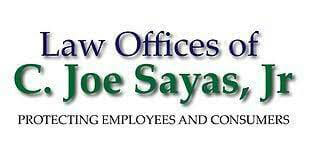
Here is a helpful summary of important employment laws that took effect in California in 2020:
California’s Minimum Wage and Exempt Salary Thresholds Increased in 2020
Employers with 25 or fewer workers must pay a minimum wage of $12 an hour and the exempt annual salary threshold increased from $45,760 to $49,920. Employers with 26 employees or more must pay $13 per hour, and the exempt annual salary threshold increased from $49,920 to $54,080.
Guidelines for Classifying Employees as Independent Contractors
Assembly Bill 5 states that a person providing labor or services for remuneration shall be considered an employee rather than an independent contractor unless the hiring entity demonstrates that: 1) the person is free from the control and direction of the hiring entity in connection with the performance of the work; 2) the person performs work that is outside the usual course of the business; and 3) the person is customarily engaged in an independently established trade, occupation or business. With employee classification, workers enjoy better protections under the law.
The Definition of “Race” Is Expanded
Existing California laws prohibit discrimination on the basis of an employee’s protected characteristics, such as race, ethnicity, and national origin. California’s lawmakers expanded the definition of “race” to now include characteristics that are historically associated with race, including hair texture and “protective hairstyles.” Thus, workplace dress codes and grooming policies may not prohibit such characteristics as “braids, locks, and twists.”
Statutory Penalties for Employer’s Late Payment Wages During Employment
Assembly Bill 673 allows employees themselves to sue for and recover penalties for the employer’s failure to pay wages on time during employment. It used to be that only the Labor Commissioner may recover civil penalties for the employer’s late payment. Now, the employees may sue the employer directly for statutory penalties and recover the following rates: 1) for any initial violation, $100 for each failure to pay each employee; 2) for each subsequent violation, or any willful or intentional violation, $200 for each failure to pay each employee, plus 25 percent of the amount unlawfully withheld.
Use of “No-Rehire” or Similar Clauses in Settlement Agreements Restricted
Assembly Bill 749 provides that settlement agreements on employment disputes “shall not contain a provision prohibiting, preventing, or otherwise restricting” the employee from obtaining future employment with the employer they had filed a claim. Any settlement agreement entered into after January 1, 2020, which contains this no-rehire provision is void. However, an employer may refuse to rehire any employee that it justly found to have engaged in sexual harassment or sexual assault.
Expanded Lactation Accommodation Requirements
Senate Bill 142 required all employers to provide an employee a break each time they need to express breast milk for an infant child. Additionally, employers must provide a clean and safe room to express milk in private that is close to the employee’s work area. Employers with fewer than 50 employees may be exempt if they’re able to show that compliance may pose an undue hardship, though such employers must still make reasonable efforts to provide employees with a room to express milk in private.
COVID-19-Related Laws
AB 1867 expanded supplemental paid sick leave for COVID-19-related reasons for certain employers not already covered by the federal Families First Coronavirus Response Act (FFCRA). Both laws are currently set to expire on December 31, 2020.
AB 2043 now requires Cal/OSHA to disseminate to agricultural employers and employees, information on the best practices to prevent COVID-19 infections, both in English and Spanish. This law only remains in effect until the end of the state of emergency.
AB 2537 requires public and private employers of workers in a hospital to supply certain employees with PPE, maintain a three-month supply of PPE and provide inventory information to Cal/OSHA upon request.
The Law Offices of C. Joe Sayas, Jr. welcomes inquiries about this topic. All inquiries are confidential and at no-cost. You can contact the office at (818) 291-0088 or visit www.joesayaslaw.com. [For more than 25 years, C. Joe Sayas, Jr., Esq. successfully recovered wages and other monetary damages for thousands of employees and consumers. He was named Top Labor & Employment Attorney in California by the Daily Journal, consistently selected as Super Lawyer by the Los Angeles Magazine, and is a past Presidential Awardee for Outstanding Filipino Overseas.]

